I’m nearing the end of the second month of my Foundations project—a year-long effort to improve twelve different foundations for living well. This month’s focus was productivity. If you’re curious, you can read my essays on the first month, fitness, here, here and here.
Next week, I’ll share some of my reflections on the month, but this essay is devoted to what I learned from my reading. Each month, I’m doing a deep dive into some important books and research on each topic. This month, I finished ten books.
Productivity is a familiar topic for me. I read most of the classic books on the topic years ago. Before starting my second book, I even briefly flirted with writing another Complete Guide on the topic and spent a couple of months researching the roots of the thinking in this area. As a result, a lot of the books I tackled this month were re-reads—books that were major influences in my youth and which I wanted to view again from a fresh perspective.
The 1-Minute Summary of What I Learned
Here are the basic takeaways from this month’s research:
Enthusiasm is the key to productivity. Happy workers are productive workers. Stress as a vehicle for producing great work is overrated.
Productivity is a key to happiness. Despite productivity’s much-maligned image as a metric of capitalist oppression—most people want to contribute meaningful work and to feel effective in their professional lives.
Managing energy and motivation beats managing time. We treat ourselves like machines, rather than biological systems, ignoring the importance of recovery.
Simple cognitive scaffolding can significantly enhance results. Checklists and simple tools for tracking work can offload the psychic burden of work, freeing us up for exceptional performance.
How much you work is a personal choice based on priorities. Regardless, productivity should be a central aim since it is, at its core, about aligning our human needs with our desire to do meaningful work.
Brief Notes on the 10 Books I Read
My favorite book was a re-read: Stephen Covey’s The 7 Habits of Highly Effective People. Despite the somewhat cheesy title and folksy way Covey writes, this book is a profound meditation on what it means to be an effective person and how we should strive to live.
For those interested in a practical system that can deliver immediate results, you can’t go wrong with David Allen’s Getting Things Done. Re-reading this book was a pleasure, as it has enormously influenced my thinking about productivity.
Finally, for an entertaining read that has immediate value, I suggest Atul Gawande’s The Checklist Manifesto.
1. Getting Things Done by David Allen
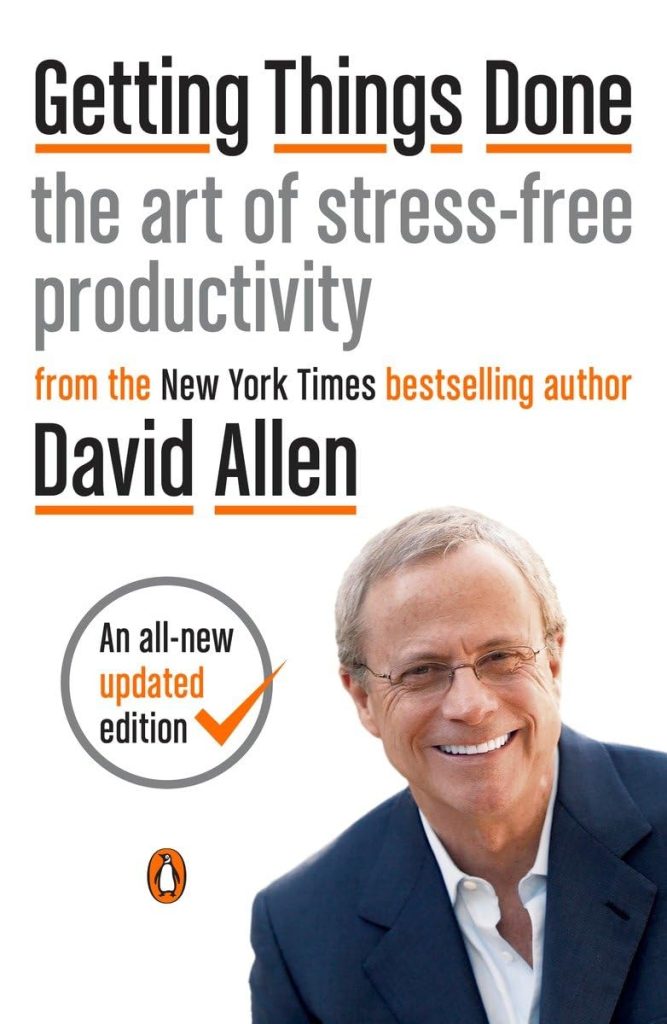
Getting Things Done is a cult hit among productivity junkies for a reason: this system forever changes how you think about getting work done.
The central idea is to create a full-capture system in which all of your tasks, appointments, ideas and projects reside so you can fully focus on your work and not be distracted by worrying about whether you’re forgetting something.
2. The Power of Full Engagement by Jim Loehr and Tony Schwartz
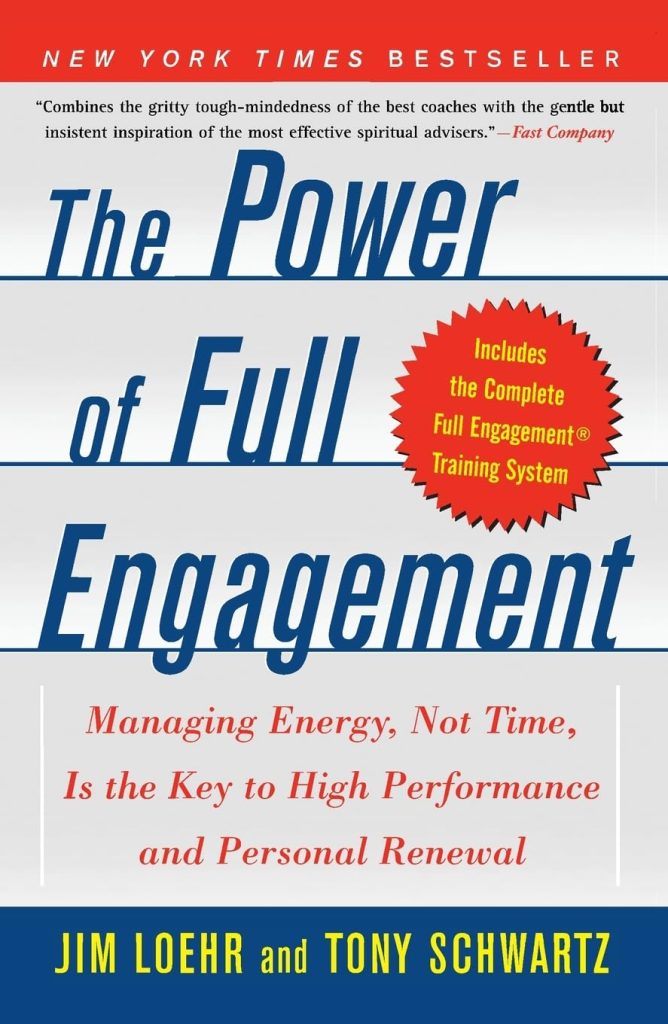
Managing energy, not time, is the key to peak performance. We should work the way athletes train, oscillating between periods of intense focus and deep recovery.
The opposite pattern, linearity, is more common in our working lives. We’re expected to perform continuously, without rest, for days, weeks and even years. Our foundations of energy begin to crumble as we feel crushed by the burdens placed upon us.
The solution is to redesign all the aspects of our lives, from fitness and diet to our purpose and life’s goals, so that we can adopt more natural rhythms that allow us to maintain high levels of energy and enthusiasm.
3. The Effective Executive by Peter Drucker
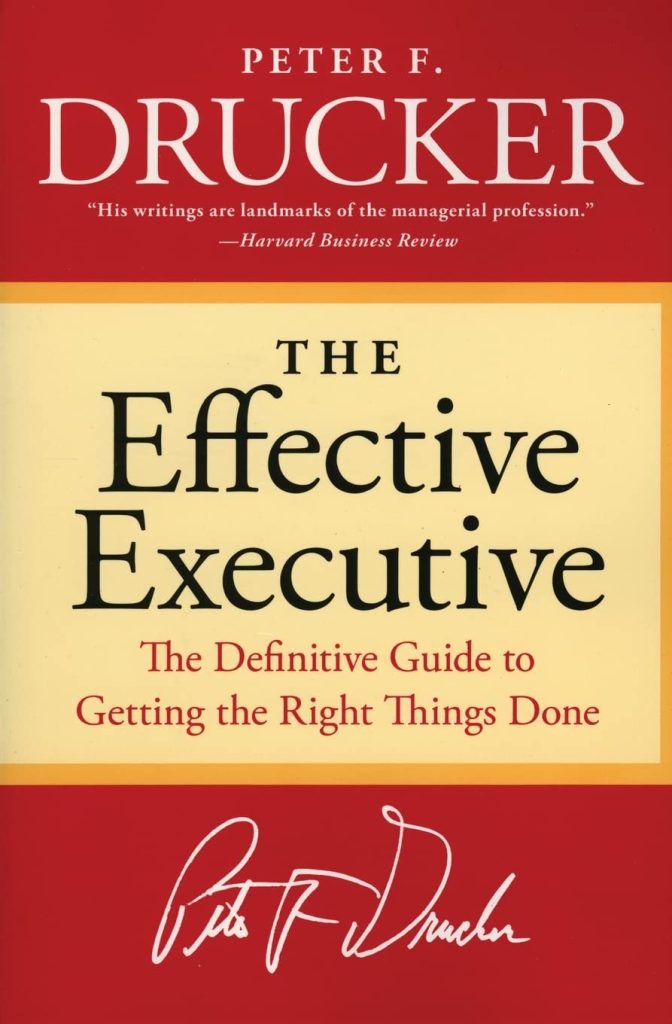
“Effective executives, in my observation, do not start with their tasks. They start with their time. And they do not start out with planning. They start by finding out where their time actually goes.”
Peter Drucker is the guru’s guru on productivity. He coined the term “knowledge worker,” and pretty much every idea about working effectively in modern society can be traced, directly or indirectly, to his thinking. I enjoyed re-reading this book, whose central ideas of tracking your time, focusing on your contribution (rather than the work), and emphasizing strengths remain relevant today.
4. The Progress Principle by Teresa Amabile and Steven Kramer
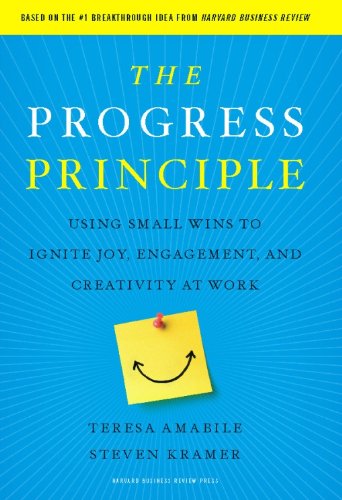
Harvard professors Amabile and Kramer conducted a large study looking at tens of thousands of daily work diaries of employees in several firms and industries. They concluded that a positive inner work life is essential to workplace performance and that, in turn, the feeling of progress is the most important ingredient in a positive inner work life.
This may seem obvious, but in surveys, most managers ranked “supporting progress” dead last in the list of factors influencing morale, and many still hold to the view that high-pressure environments bring out the best performance.
5. Flow by Mihaly Csikszentmihalyi
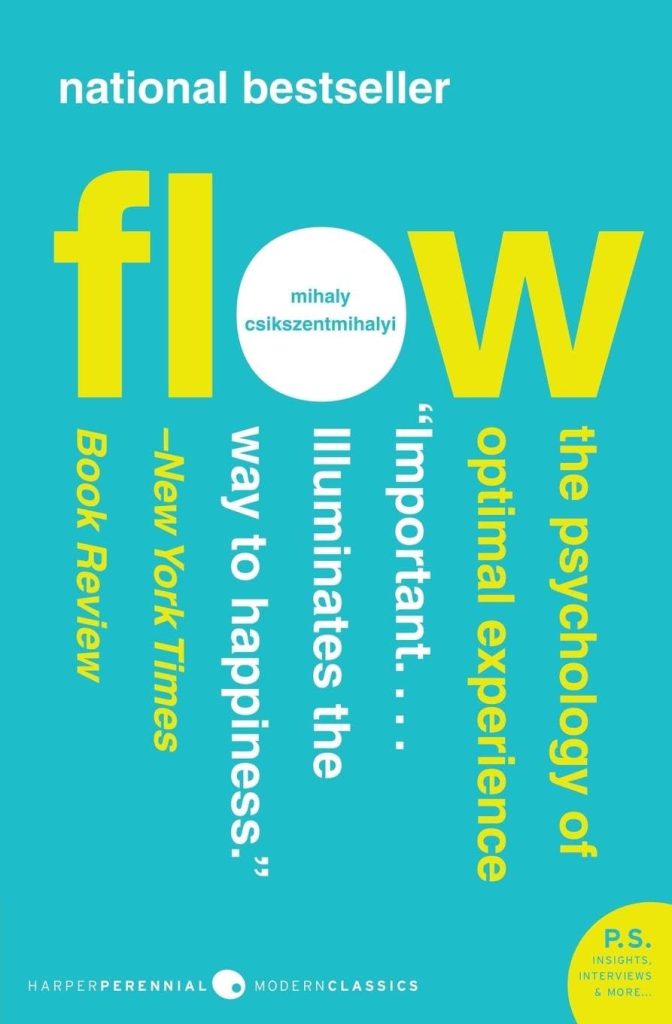
I’ve read a lot of Csikszentmihalyi’s academic work, so it was interesting to re-read his magnum opus on the role of optimizing conscious experience in the pursuit of the good life.
On the one hand, I find many of his examples and arguments persuasive. On the other hand, I feel like I understand flow less than when I started—since this concept appears to encompass not only the feeling of absorption while engaged in deep tasks and hobbies but also all sorts of other life conditions Csikszentmihalyi describes positively. Perhaps it’s just my expectations being violated here, but I had been under the impression that flow was a much more rigorously defined academic construct.
6. The Checklist Manifesto by Atul Gawande
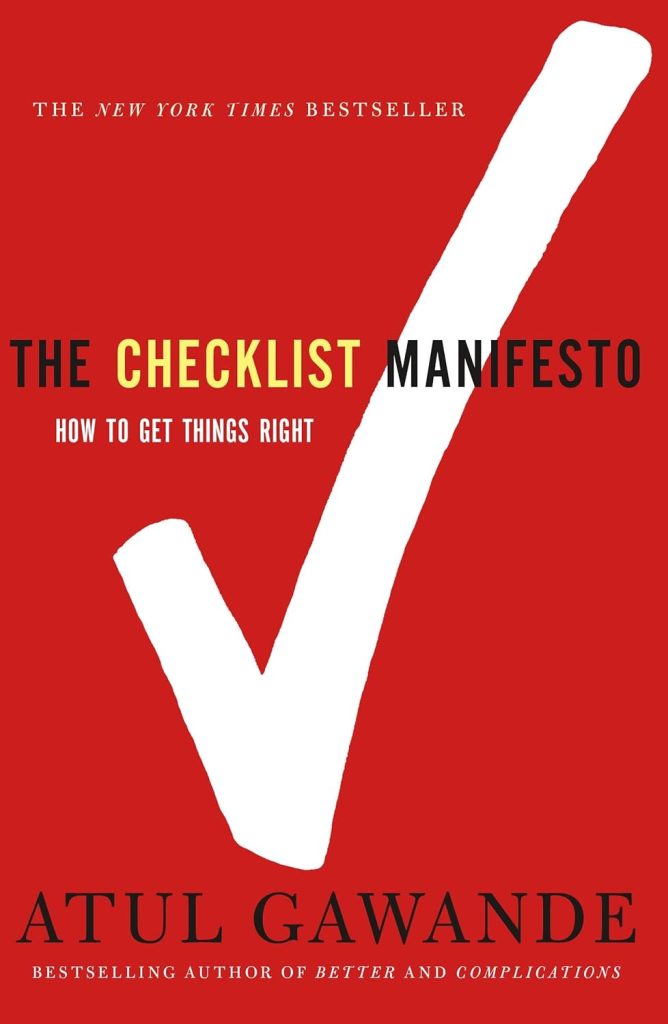
Checklists save lives. Yet many professionals resist using them, feeling that, as highly trained experts, something as simple as ticking off a box is beneath them.
Gawande argues persuasively that we need the cognitive safety net checklists provide precisely because we live in a time of such intensive expertise. Our work has become increasingly complicated, and following “best practices” perfectly is beyond the capabilities of even the smartest of us.
7. The 4 Disciplines of Execution by Chris McChesney, Sean Covey, Jim Huling, Beverly Walker and Scott Thele
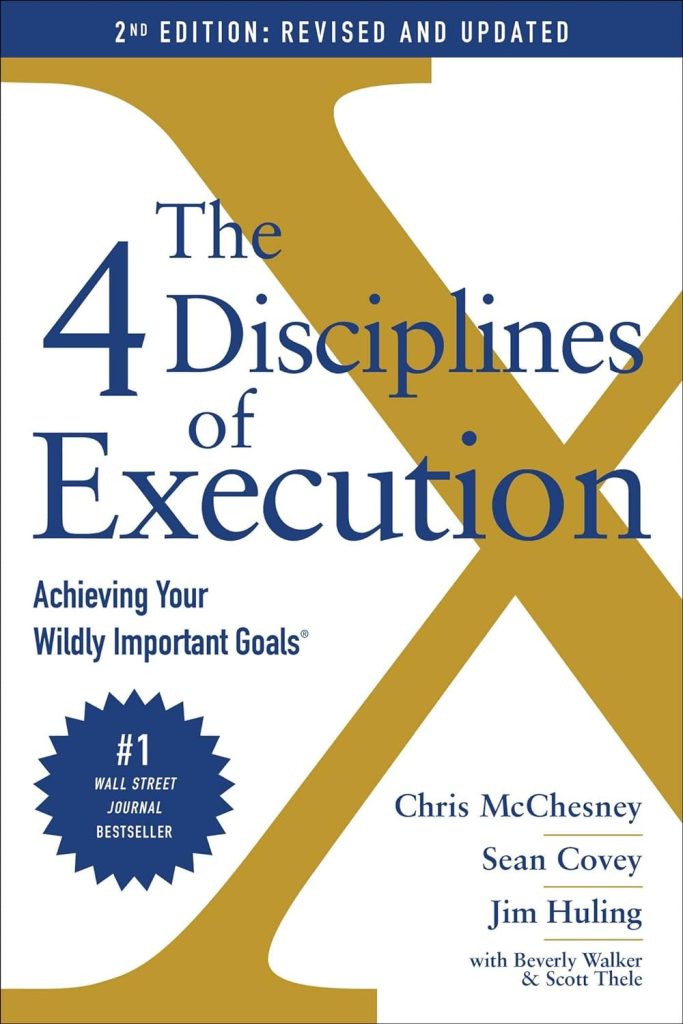
Most business training is in strategy, but execution is what trips up most projects. 4DX is a great resource for how to make execution happen in big organizations—and for yourself. The four disciplines are:
- Choose a single focus, a “wildly important goal” you’ll try to achieve above and beyond the day-to-day whirlwind of your working life.
- Track your progress on the goal. In particular, separate the lag measures you care about from lead measures you can actually influence.
- Put up a scoreboard so everyone can see your progress.
- Stay accountable through a weekly meeting where you see how you can make progress happen.
This book has an “in the trenches” feeling, covering many nuances that have come up in applying this framework to hundreds of organizations.
8. The Now Habit by Neil Fiore
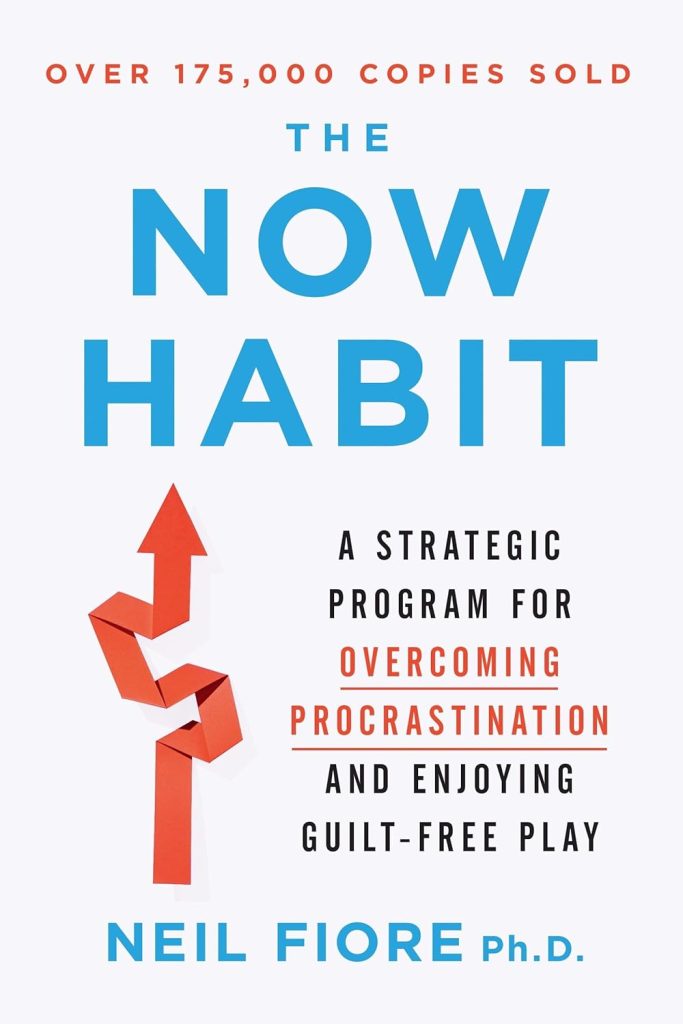
Why do we procrastinate? Psychologist Fiore argues that the beliefs and self-talk we engage in keep otherwise top performers from consistently engaging in their best work. By rescripting our inner dialog, we can stop ourselves from destructively delaying doing the things we need to do.
I particularly like Fiore’s suggestion of an “unschedule” or booking, in advance, your guilt-free time off. Too often, we procrastinate, feel there isn’t enough time, and then commit ourselves to a hypothetical schedule of unending work. Yet this schedule is so unappealing that we unconsciously rebel and procrastinate on starting, thus exacerbating the underlying problems that caused us to propose the onerous schedule in the first place.
9. Managing Oneself by Peter Drucker
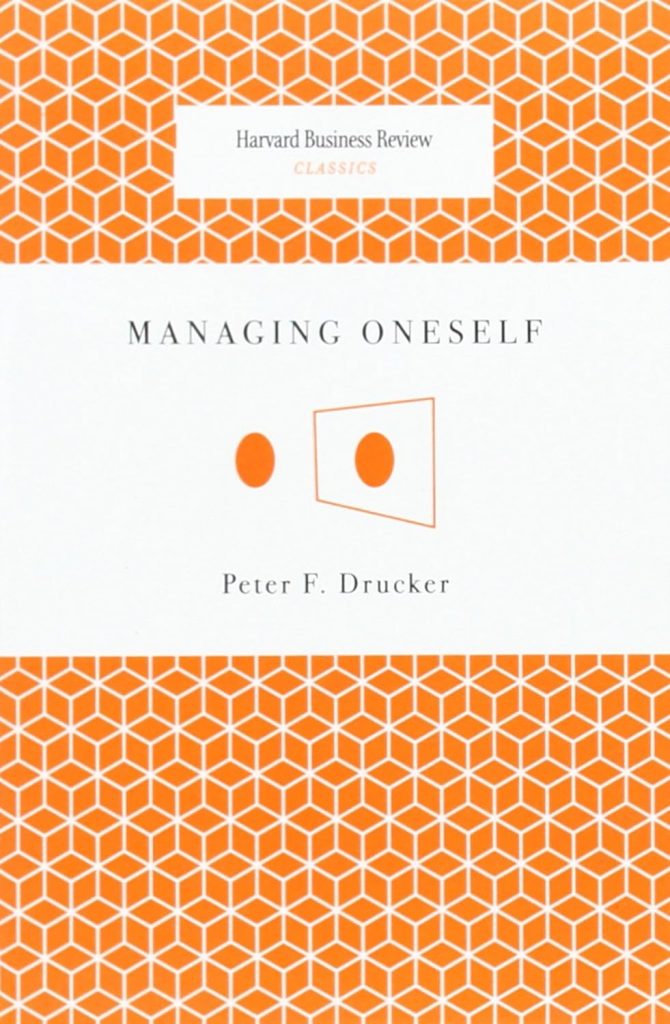
This book is quite short, more of a long essay rather than a book. (As more books should be.)
Perhaps the biggest takeaway I got was Drucker’s advice on managing the midlife crisis. He argues that a person who has reached the apex of their career, which often happens in one’s 40s, will likely feel bored. The solution, he argues, is to cultivate secondary hobbies and volunteer pursuits that will sustain engagement in the second half of life.
10. The 7 Habits of Highly Effective People by Stephen Covey
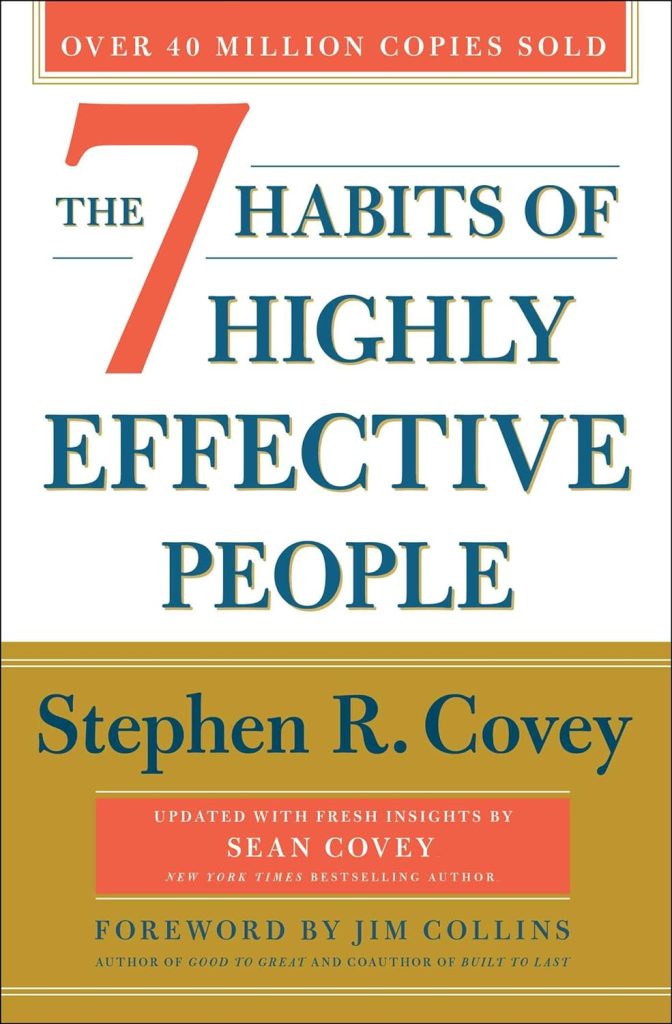
Most books are clever. Few are wise. Covey’s is one of the latter.
I first read this book as a teenager. Perhaps because I now have children of my own, the interpersonal lessons in Covey’s book struck me as particularly relevant. Covey himself had nine children and frequently references parenting in his examples.
If there’s a central idea in this book, it is that being good precedes being great, and conducting yourself in ways that demonstrate true character must take priority over tactics that merely get a result.
Moralizing self-help is unfashionable these days. Perhaps it smells too much like organized religion, which has been undermined through culture-warring and the well-publicized failings of many organized sects. As a result, there’s a bias to present value-neutral tactical advice—strategies for achieving results that are agnostic to deeper motivations.
Maybe it’s just me getting older, but I’m increasingly convinced that doing what’s right and doing what’s effective cannot be separated, and that strategies to maximize our desires, without first asking whether those desires ought to be maximized, are ultimately self-defeating.
_ _ _
That’s it for my notes this month. Next week, I’ll provide a recap of how this month’s efforts to improve my productivity systems went, before I embark on the third foundation in my year-long project: money.


 I'm a Wall Street Journal bestselling author, podcast host, computer programmer and an avid reader. Since 2006, I've published weekly essays on this website to help people like you learn and think better. My work has been featured in The New York Times, BBC, TEDx, Pocket, Business Insider and more. I don't promise I have all the answers, just a place to start.
I'm a Wall Street Journal bestselling author, podcast host, computer programmer and an avid reader. Since 2006, I've published weekly essays on this website to help people like you learn and think better. My work has been featured in The New York Times, BBC, TEDx, Pocket, Business Insider and more. I don't promise I have all the answers, just a place to start.